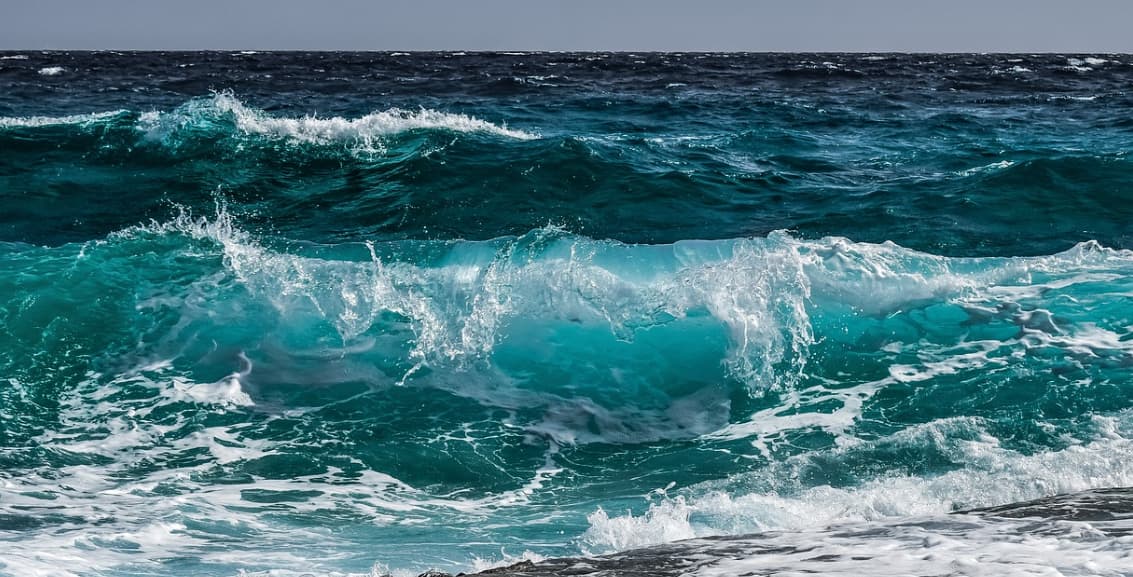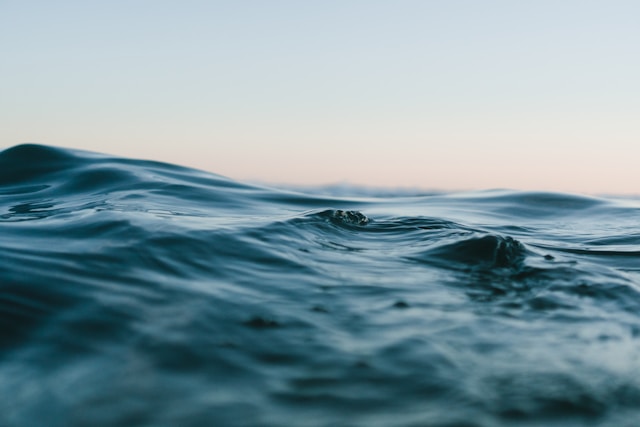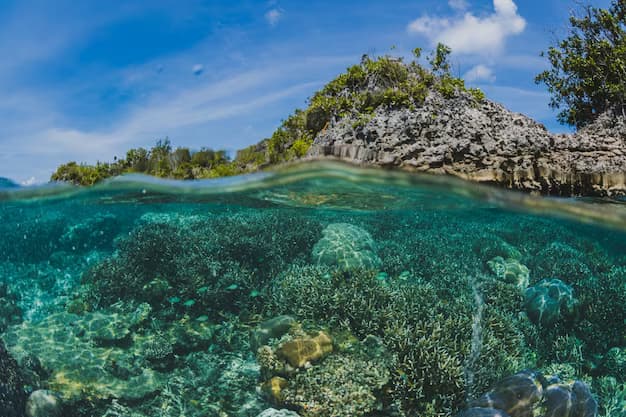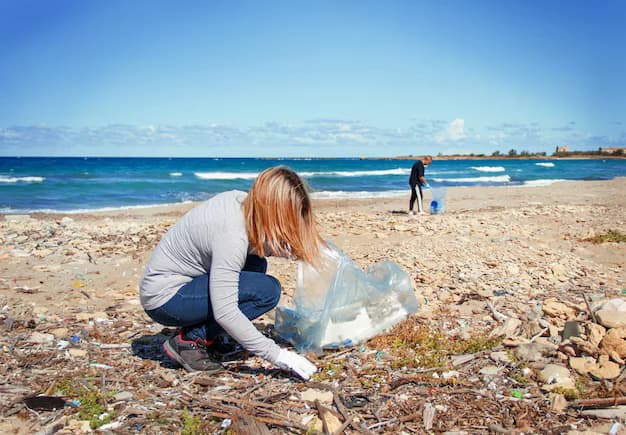The vast expanse of the ocean has intrigued humanity for centuries, serving as a source of wonder and inspiration. Whether driven by academic pursuits, sheer curiosity, or the desire to impress, people are drawn to uncovering its secrets. Here, we present a curated collection of intriguing facts about the ocean, shedding light on its immense beauty and complexity.
What Are The Most Amazing Facts About the Ocean?
1. The Dominance of Water on Earth
Earth’s surface is predominantly covered by water, with oceans comprising three-quarters of its total area. These vast bodies of water include the Atlantic, Pacific, Southern, Indian, and Arctic oceans.
2. The Aquatic Realm
An astonishing ninety-four percent of all life forms on our planet are aquatic, with the majority inhabiting the ocean’s mysterious “abyssal zone.”
3. Uncharted Depths
Despite humanity’s advancements in exploration, only a mere five percent of the world’s oceans have been thoroughly explored and mapped, leaving much of its depths shrouded in mystery.
4. The Enigmatic Deep Sea
Light penetration in the ocean is limited to approximately 300 feet, creating a region known as the “deep sea” that remains perpetually veiled in darkness.
5. Hidden Treasures
Surprisingly, the world’s oceans hold an estimated twenty million tons of gold, a valuable resource waiting to be unearthed.
6. Unexplored Biodiversity
Marine biologists estimate that only two-thirds of marine life have been documented, indicating the existence of countless undiscovered species awaiting exploration.
7. Submerged Wonders
Beneath the ocean’s surface lie captivating landscapes, including kelp forests that rival terrestrial forests in lushness and diversity.
8. Archaeological Marvels
The ocean serves as a vast repository of history, housing relics, artifacts, and even lost cities such as Thonis/Heracleion, discovered off the coast of Egypt in 2000.
9. The Depths of the Mariana Trench
Descending to nearly 36,000 feet, the Mariana Trench harbors the deepest point on Earth’s ocean floor, a realm largely uncharted by humanity.
10. The Majesty of Underwater Mountains
The Mid-Oceanic Mountain Ridge, the largest mountain range on Earth, stretches beneath the ocean’s surface, spanning an impressive 35,000 miles.
11. The Ocean’s Vital Role
Not only is the ocean home to diverse ecosystems, but it also plays a crucial role in regulating Earth’s climate and producing oxygen essential for life on land.
12. Environmental Threats
Despite its resilience, the ocean faces numerous threats, including pollution, overfishing, and the impacts of climate change, endangering its delicate balance.
13. Satellite Surveillance
Modern technology enables the monitoring of oceanic conditions through satellite imagery, providing valuable insights into water temperature, wave heights, and more.
As humanity continues to unlock the mysteries of the ocean, each discovery offers a glimpse into the complexities of this vast and wondrous realm, inspiring awe and reverence for the wonders of our planet’s watery depths.
14. The Ocean’s Geological Forces
Volcanic activity, earthquakes, and underwater landslides shape the ocean floor, with the potential to trigger devastating tsunamis, highlighting the dynamic and ever-changing nature of marine environments.
15. Life’s Origins
The ocean has been the cradle of life for billions of years, with microbial communities dating back to the Jurassic era discovered in its depths, showcasing the resilience and adaptability of marine life.
16. The Ocean’s Global Reach
As a vital component of Earth’s interconnected systems, changes in the ocean reverberate worldwide, influencing weather patterns, coastal ecosystems, and global biodiversity.
17. Humanity’s Impact
Human activities, from industrial pollution to plastic waste, pose significant threats to the health and stability of ocean ecosystems, underscoring the urgent need for conservation efforts and sustainable practices.
18. The Fragile Balance
Despite its vastness, the ocean is a fragile ecosystem, susceptible to the cumulative effects of human exploitation and environmental degradation, emphasizing the importance of responsible stewardship.
19. A Source of Inspiration
From ancient myths to modern exploration, the ocean has captivated the human imagination, serving as a source of inspiration for art, literature, and scientific inquiry throughout history.
20. A Call to Action
As stewards of our planet, it is incumbent upon humanity to safeguard the ocean’s health and vitality for future generations, recognizing its intrinsic value and irreplaceable role in sustaining life on Earth.
21. Harnessing the Ocean’s Potential
Beyond its ecological significance, the ocean offers vast potential for renewable energy generation, such as offshore wind farms, tidal energy, and wave power, presenting opportunities for sustainable development and reducing reliance on fossil fuels.
22. Exploring New Frontiers
With advances in technology and scientific research, humanity continues to push the boundaries of ocean exploration, delving deeper into its uncharted depths and uncovering new species, ecosystems, and geological phenomena.
23. Cultivating Ocean Literacy
Education and awareness play crucial roles in fostering a deeper understanding and appreciation of the ocean’s importance, inspiring future generations to become advocates for marine conservation and stewardship.
24. Collaborative Conservation Efforts
Addressing the complex challenges facing the ocean requires collaboration across disciplines, industries, and nations, as we work together to implement effective policies, initiatives, and marine protected areas.
25. Empowering Local Communities
Coastal communities rely on the ocean for sustenance, livelihoods, and cultural identity, highlighting the need for inclusive and participatory approaches to ocean governance that prioritize the well-being of coastal populations and ecosystems.
26. Embracing Innovation and Sustainability
Innovation holds the key to unlocking solutions to pressing ocean-related issues, from plastic pollution to overfishing, as we strive to develop and implement technologies and practices that promote sustainable resource management and conservation.
27. Nurturing Ocean Resilience
Building resilience in marine ecosystems is essential for mitigating the impacts of climate change, pollution, and other stressors, ensuring the long-term health and vitality of the ocean for generations to come.
28. Celebrating Ocean Diversity
The ocean is a realm of unparalleled diversity, teeming with life in all its forms, from microscopic plankton to majestic whales, reminding us of the interconnectedness and interdependence of all living beings on Earth.
29. Honoring Indigenous Wisdom
Indigenous peoples have stewarded the ocean for millennia, possessing invaluable knowledge and traditions that offer valuable insights into sustainable resource management and conservation practices.
30. Sustaining Momentum
As we reflect on the ocean’s past, present, and future, let us renew our commitment to protecting and preserving this precious resource, recognizing that our actions today will shape the ocean’s legacy for generations to come.
31. Oceanic Diplomacy
Cooperation among nations is essential for addressing transboundary issues and ensuring the sustainable management of shared ocean resources, highlighting the importance of diplomatic efforts and international agreements.
32. Oceanic Exploration
Ongoing scientific expeditions and exploratory missions enable us to expand our knowledge of the ocean, uncovering new species, habitats, and geological features that contribute to our understanding of Earth’s ecosystems and history.
33. Technological Advancements
Advances in marine technology, such as remotely operated vehicles (ROVs) and underwater drones, enhance our ability to explore and study the ocean’s depths, opening new avenues for scientific discovery and innovation.
34. Citizen Science Initiatives
Engaging the public in scientific research through citizen science projects empowers individuals to contribute valuable data and observations, fostering a sense of stewardship and collective responsibility for ocean conservation.
35. Ocean Literacy Education
Integrating ocean literacy into formal and informal education curricula equips learners with the knowledge and skills needed to understand and address pressing ocean-related challenges, fostering a sense of environmental stewardship and advocacy from a young age.
36. Sustainable Seafood Practices
Promoting sustainable fishing practices and seafood consumption helps to mitigate overfishing and reduce bycatch, supporting the long-term health and resilience of marine ecosystems and coastal communities that depend on fisheries for their livelihoods.
37. Coastal Resilience Planning
Investing in coastal resilience measures, such as mangrove restoration, shoreline protection, and sustainable land use planning, helps to safeguard coastal communities from the impacts of sea level rise, storm surges, and other climate-related hazards.
38. Oceanic Conservation Funding
Allocating resources and funding to support marine conservation initiatives, research projects, and protected area management is critical for preserving biodiversity, restoring degraded habitats, and promoting sustainable ocean governance.
39. Public Awareness Campaigns
Raising awareness about the importance of the ocean and the urgent need for conservation action through public outreach campaigns, media initiatives, and advocacy efforts helps to mobilize support and catalyze positive change at local, national, and global levels.
40. Corporate Sustainability Initiatives
Encouraging businesses to adopt sustainable practices and reduce their environmental footprint, such as minimizing plastic packaging, implementing responsible waste management strategies, and supporting marine conservation projects, contributes to the collective effort to protect the ocean and safeguard its resources for future generations.
41. Community Engagement and Empowerment
Empowering local communities to participate in decision-making processes, conservation projects, and sustainable livelihood initiatives fosters a sense of ownership and responsibility for ocean stewardship, building resilience and adaptive capacity in coastal areas vulnerable to environmental change.
42. Holistic Ecosystem Management
Adopting an ecosystem-based approach to ocean management that considers the interconnectedness of marine species, habitats, and human activities helps to preserve biodiversity, enhance ecosystem resilience, and promote sustainable use of marine resources.
43. Policy Reform and Implementation
Advocating for evidence-based policy reforms and the effective implementation of existing regulations and agreements strengthens ocean governance frameworks, enhances marine protection efforts, and advances sustainable development goals for oceans and coasts.
44. Collective Action for Ocean Health
By working together across sectors, disciplines, and borders, we can address the multifaceted challenges facing the ocean and build a more resilient, equitable, and sustainable future for all life on Earth.
In Conclusion
The ocean, with its vast depths and intricate ecosystems, remains a source of wonder and fascination for humanity. As we uncover its mysteries and confront its challenges, let us remember our duty as stewards of this precious resource. By fostering collaboration, embracing innovation, and championing conservation efforts, we can ensure a sustainable future for our ocean and all who depend on it. Together, let us strive to protect and preserve the ocean for generations to come.



